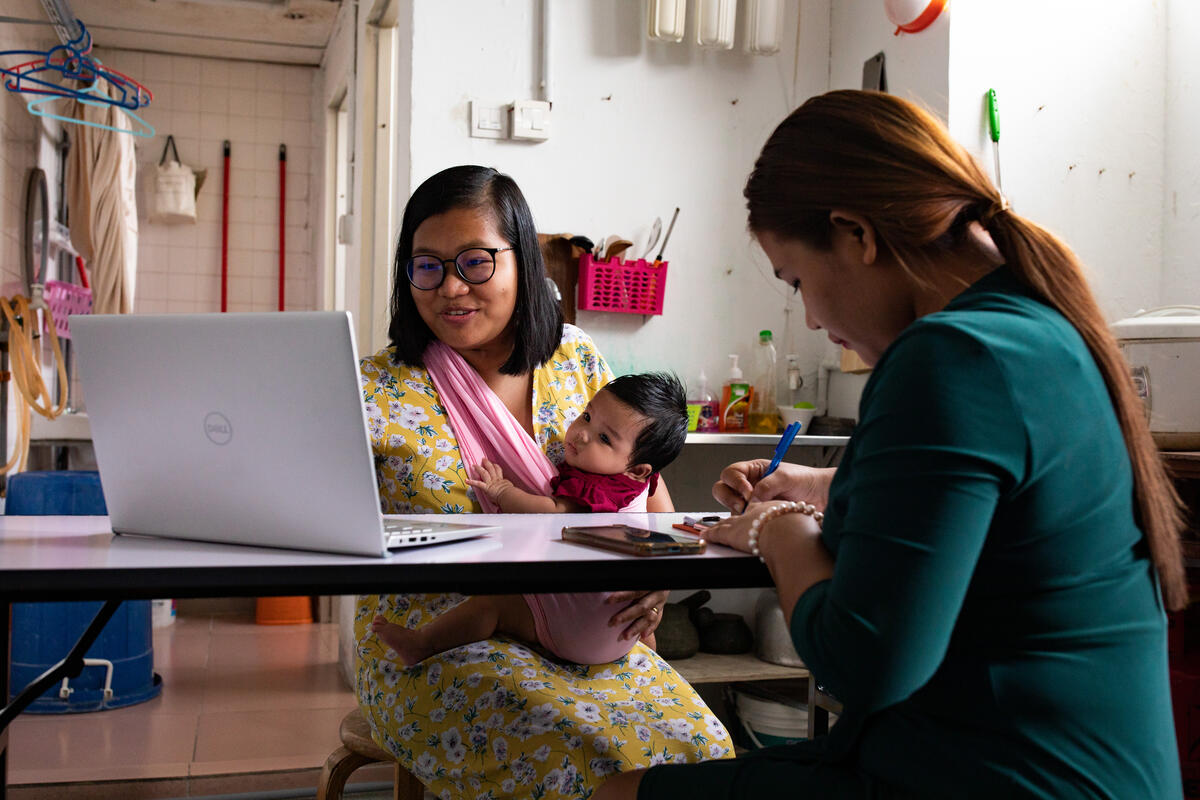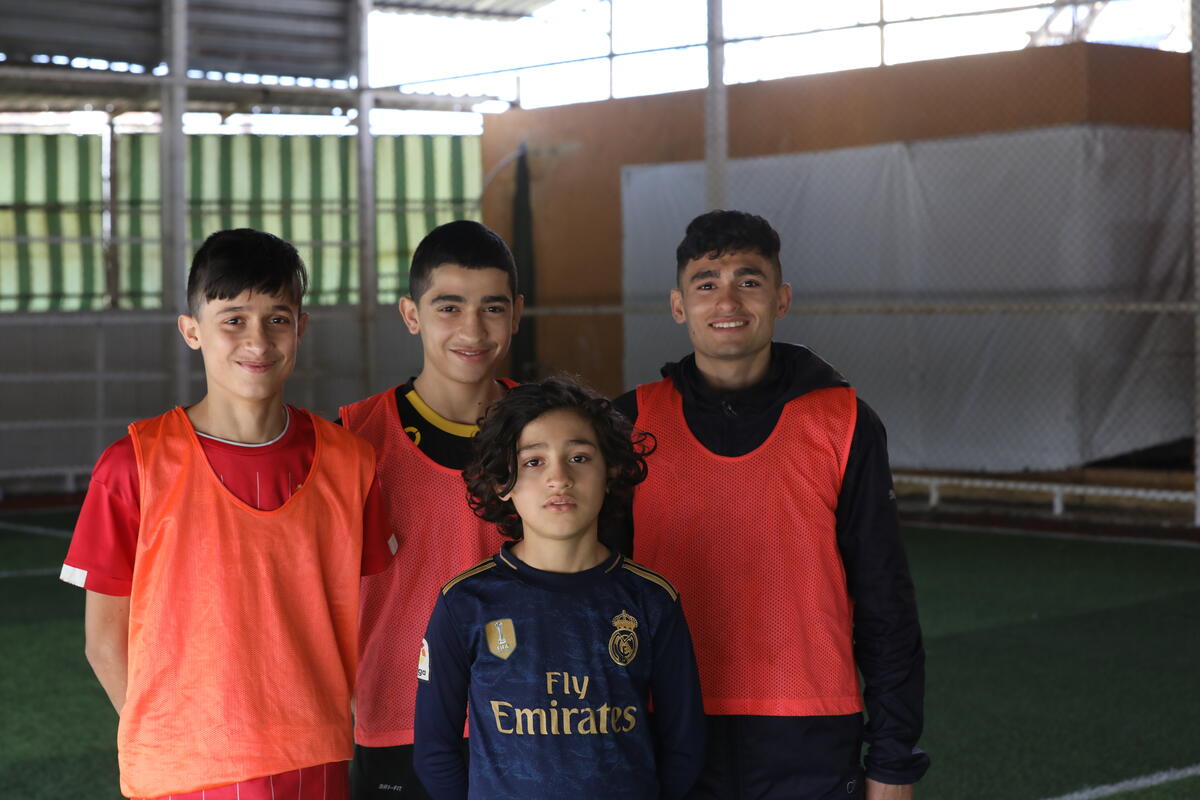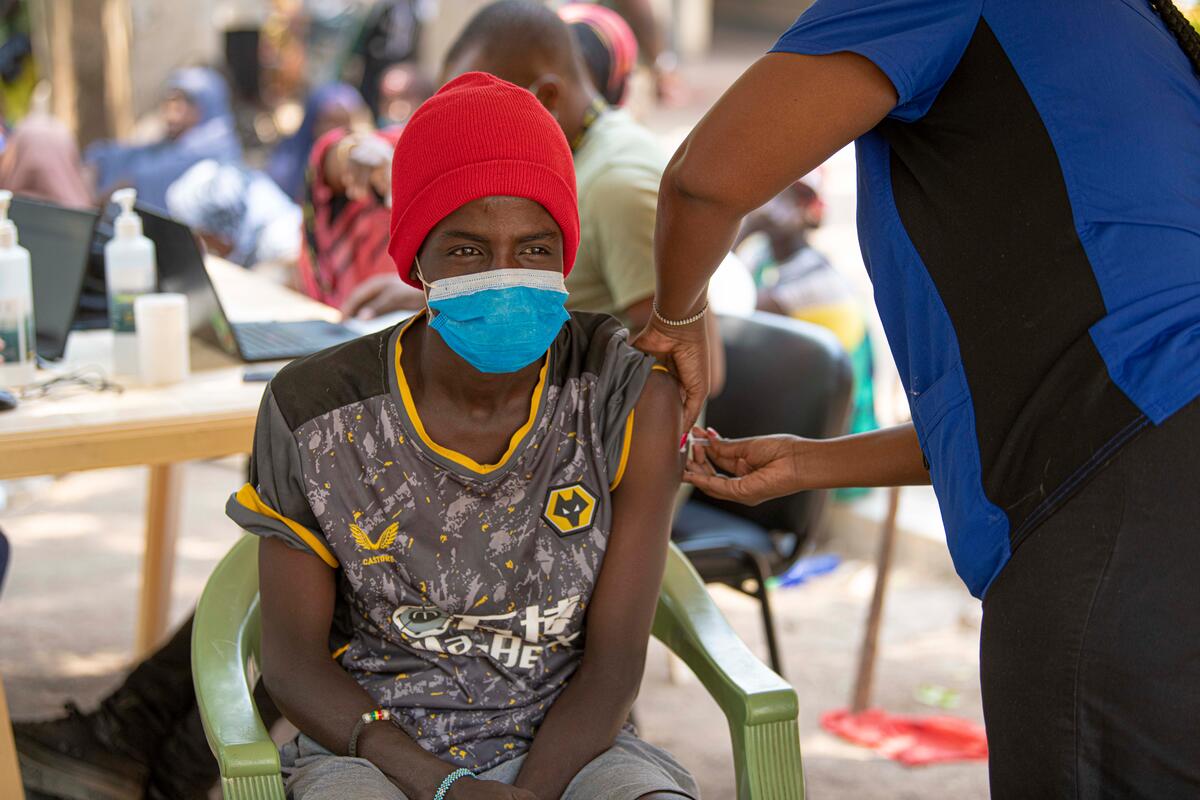World Malaria Day: Nothing But Nets does nothing but good for refugees
World Malaria Day: Nothing But Nets does nothing but good for refugees

DADAAB, Kenya, April 24 (UNHCR) - In the sprawling complex of UNHCR-run refugee camps in north-east Kenya's arid Dadaab area, a simple mosquito net can make the difference between misery and comfort, life and death.
Fartun, a 24-year-old Somali mother, was overjoyed when she received her insecticide-treated net from UNHCR partner, the International Rescue Committee (IRC), on arriving at Dadaab's Hagadera camp earlier this year after fleeing from her home in the Somali port city of Kismayo.
It was one of the first items that she received and proved vital just two days later, when she gave birth to a son in the makeshift tukul (shelter) that she now lives in at Hagadera - the largest of three camps at Dadaab that hold some 270,000 people and make this one of the most congested refugee sites in the world.
The net protected her, her new-born boy and her five-year-old daughter, from mosquitoes and the threat of malaria. "I use it every night when I and my children go to sleep. It makes me feel safe and it protects us from insects, snakes and scorpions," said Fartun, who lost contact with her husband and another daughter after fleeing from their home in the volatile south of Somalia.
Since the start of the year, IRC has been distributing nets every week to vulnerable refugees in Hagadera, especially pregnant women and children aged under five years. Due to their low levels of immunity, both are at greater risk of developing serious complications if they contract malaria.
It can cause spontaneous abortion in pregnant women, while infants run the risk of contracting the potentially fatal cerebral malaria. But a simple piece of chemically-treated mesh can avert this, and the importance of prevention will be one of the awareness factors broadcast globally on World Malaria Day tomorrow.
IRC uses its community outreach workers to ensure that the most vulnerable refugees receive the specially-treated nets, which have a five-year lifespan and were funded by the UN Foundation's Nothing But Nets (NBN) campaign.
Last year, NBN signed an agreement with UNHCR to eliminate malaria deaths in refugee camps, particularly in Africa. The campaign aims to provide 275,000 mosquito bed nets for distribution in Kenya, Sudan, Tanzania and Uganda by UNHCR implementing partners. One net, which can protect two people, costs US$10 to purchase, distribute and educate families on its use.
So far this year, IRC has distributed almost 5,000 in Hagadera, while another UNHCR partner, GTZ, has handed out a similar number in each of the other two Dadaab camps.
"Distribution of nets has helped increase the number of women presenting their children for immunization and vaccination," said Victoria Mshiki of IRC's Community Health Programme. "We couple the distribution with health education and underline the importance of using the nets."
Kamara, a 30-year-old Somali Bantu mother of five, also arrived in Hagadera when she was pregnant and is now about to give birth. She was given a net when she visited the IRC hospital for an ante-natal check-up.
Every night she and her children, including three-year-old twins Mahina and Nasro, sleep under two nets in the mud-brick shelter in which they live. "The nets have helped a lot. My children sleep easier at night under them and I feel safer for myself and them as a result," Kamara said.
With increased funding and more nets, the plan is to provide everyone in Dadaab with mosquito net protection. Of the millions of people of concern to UNHCR, two thirds live in malaria endemic areas. UNHCR estimates that about 930,000 refugees are infected with malaria every year in Africa.
By Andy Needham in Dadaab, Kenya








